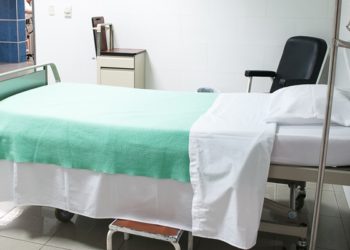Cognitive behavioral therapy effective for insomnia with medical or psychiatric comorbidities
1. Based on a systematic review and meta-analysis on the effect of cognitive behavioral therapy for insomnia (CBT-I) in patients who also had comorbid medical or psychiatric conditions, CBT-I increased the likelihood of achieving remission from insomnia by more than twice as much as no therapy. It was also effective at improving sleep efficiency, sleep onset latency, and wake after sleep onset; however, it did not improve much on the total sleep time.
2. Additionally, CBT-I did not have a significant effect on the comorbid medical or psychiatric conditions themselves.
Evidence Rating Level: 1 (Excellent)
Study Rundown: Cognitive behavioral therapy for insomnia (CBT-I), which consists of stimulus control, sleep restriction, and cognitive therapy, has been the most effective therapy for primary insomnia. The original studies that evaluated this modality initially excluded patients with comorbid psychiatric or medical conditions. Since these comorbid conditions are so prevalent with insomnia, CBT-I has been increasingly studied in these situations with promising results. This systematic review and meta-analysis was conducted to identify the efficacy of CBT-I for patients with insomnia who have comorbid psychiatric and medical conditions. The results of the study showed that CBT-I increased likelihood of achieving remission from insomnia by more than twice as much as no therapy. It was also effective at improving sleep efficiency, sleep onset latency, and wake after sleep onset; however it did not improve much on the total sleep time. Additionally, CBT-I did not have a significant effect on the comorbid medical or psychiatric conditions themselves.
The major strength of the study was that only randomized controlled trials were included, so the data analyzed all came from high-quality studies. A weakness of the study was the heterogeneity of the comorbid psychiatric and medical conditions included, which made the analysis more difficult to interpret. Also, the specifics of the CBT were not universal across the different studies. Moreover, the sleep outcome parameters were largely subjective, which adds bias.
Click to read the study, published today in JAMA Internal Medicine
Click to read an invited commentary in JAMA Internal Medicine
Relevant Reading: Cognitive-behavioral therapy for insomnia in knee osteoarthritis: a randomized, double-blind, active placebo-controlled clinical trial.
In-Depth [systematic review and meta-analysis]: A systematic review was conducted using PubMed, PsychINFO, and Cochrane Library. Inclusion criteria for this meta-analysis were studies with CBT-I as a treatment arm, adults with documented insomnia along with psychiatric or medical conditions, and randomized controlled trial as the design of the study. Sleep outcome parameters included the following (based on self-reported sleep diaries): sleep efficiency (SE), total sleep time (TST), sleep onset latency (SOL), and wake after sleep onset (WASO). Insomnia remission after the intervention was defined by the results of questionnaires, Insomnia Severity Index (ISI) or Pittsburg Sleep Quality Index (PSQI). Measured changes in the medical and psychiatric conditions were also evaluated, though if exact medical parameters were not available, general outcomes of fatigue, depression, anxiety, and quality of life were substituted.
In the final analysis, there were 37 randomized controlled trials published from 1996 to 2014, and included a total of 2189 participants. Remission rates were higher in the CBT-I groups as compared to the control groups (36% vs 16.9%; OR 3.28, p < 0.001). The effects on the sleep parameters and comorbid conditions were described by the Hedges “g”, which is a measure of the effect size (0.2 is small, 0.5 is medium, and 0.8 is large). The effect size on most of the sleep parameters (except TST) were all medium to large, ranging from g = 0.68 to g = 0.91. However, the effect size on the comorbid medical or psychiatric condition was small, with g = 0.39.
Image: CC/Wiki
©2015 2 Minute Medicine, Inc. All rights reserved. No works may be reproduced without expressed written consent from 2 Minute Medicine, Inc. Inquire about licensing here. No article should be construed as medical advice and is not intended as such by the authors or by 2 Minute Medicine, Inc.







